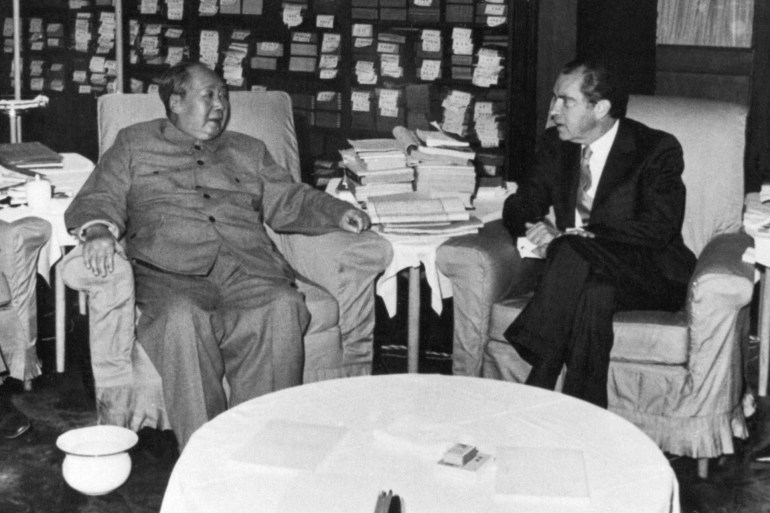The British newspaper "The Financial Times" published an article by its editor for American affairs, Edward Luce, in which he discussed the repercussions of the conflict in Ukraine on the United States' relations with Russia and China.
The writer began his article with speeches by the veteran American diplomat Henry Kissinger and the Director of the Central Intelligence Agency "CIA" (CIA) William Burns at the ceremony held by the British newspaper in Washington early last week.
On that occasion, Kissinger described what is happening in the world, saying, "We are now living in a whole new era," while Burns saw that Chinese President Xi Jinping was concerned about the damage to his country's reputation due to the brutality of Russian aggression against the Ukrainian people.
Although Russian President Vladimir Putin is beating the drums of nuclear war, Burns sees the United States as its main enemy, and in that he says, “Putin proves very disturbingly that declining powers can be just as destructive as rising powers.” ".
The author of the article agrees with what the first intelligence man in the United States said, as he believes that China still poses the greatest threat, adding that one of the lessons of history learned is that it enables one today to think about things from a different perspective.
Fifty years ago, then US President Richard Nixon and his National Security Adviser Henry Kissinger paid a first-of-its-kind visit to China that changed the course of the Cold War by opening up to the communist state led at that time by Mao Zedong.
The writer considered that that visit was the largest initiative to occur in the "Cold War chessboard", as it established the division between the largest communist country in the world and the most powerful country in the same camp, in reference to Russia.
However, the relationship between Beijing and Washington has undergone a transformation and history has turned 180 degrees. The 50th anniversary last February of that historic visit passed in silence;
The administration of US President Joe Biden ignored China's calls for a joint event to mark the occasion.
When Nixon visited China in 1972, he paid no heed to the criticisms of the American right over him making a deal with Mao Zedong in the midst of the Cultural Revolution in China, and according to the British newspaper article, the American foreign policy establishment absorbed the positive side of that deal that made the Soviet Union isolated and weaker .
In contrast, there is a consensus in Washington today on foreign policy that classifies China and Russia as twins, and this time Russia is the lowest.
Nixon (right) and Mao meeting in 1972 (Getty Images)
tyranny and democracy
President Biden portrayed global stakes as a competition between authoritarianism and democracy.
Kissinger clearly disagrees, though he is careful not to say anything important in clear terms.
He argues that differences in ideology should not be the main issue of confrontation "unless we are prepared to make regime change the main objective of our policy."
The author of the article picks up this thread to wonder;
What is the CIA thinking?
And based on this question, he says that Burns - who speaks Russian - had previously worked as an ambassador to Moscow, and therefore he knows Putin well.
The writer quotes Burns as saying that he dealt with Putin at that time and has been watching him for many years, noting in this regard that what he saw - especially in the past decade - is that the man "is immersed in a mixture of a burning feeling of grievance, ambition and insecurity."
Burns added that Putin's willingness to take risks increased over the years as he consolidated his grip on power, and the circle of his advisors narrowed.
The CIA director attributed this in part to the "bold" intelligence campaigns of the United States, forcing Russia to return to the starting point.
The author of the article claims that the military situation for Ukraine and its supporters is currently more optimistic than at any time since the Russian invasion on February 24.
According to William Burns, pre-emptive intelligence robbed any excuses that Putin had used to justify the invasion.
He added that the war may have entered the stage of attrition, during which Russia may seek to expand its control over the eastern Ukrainian regions before reorganizing its ranks in preparation for a new aggression against the capital, Kyiv.
The author of the article concluded that the United States wanted nothing more than to hold Putin accountable for his war crimes.
In other words, Washington wants nothing more than regime change in Russia.
Burns was quoted as saying that China under President Xi Jinping nonetheless remains "the greatest long-term geopolitical challenge we face."

